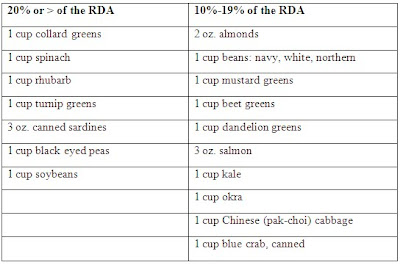 Recently, a friend of mine found out she is lactose intolerant and it made me start thinking about the astonishing number of people I know with this same condition. Lactase is the enzyme that breaks down the sugar lactose in dairy products and it is produced at birth when our bodies rely heavily on milk for nutrition.
Recently, a friend of mine found out she is lactose intolerant and it made me start thinking about the astonishing number of people I know with this same condition. Lactase is the enzyme that breaks down the sugar lactose in dairy products and it is produced at birth when our bodies rely heavily on milk for nutrition.This enzyme is thought to decline as we age and start relying on milk less. This decline can eventually lead to lactose intolerance in some people. Other possible causes of lactose intolerance are surgeries or illness of the small intestine that reduce this enzyme’s production. There is also a genetic component that leaves people without the ability to produce lactase.
For dairy lovers who rely on dairy as their main source of calcium, supplementation may be an alternative. But there are plenty of other foods you can eat with high levels of calcium. For the average adult, 19-50 years old, we need about 1000 mg of calcium a day.
The following foods are a good source of calcium and provide at least 10%-20% of the Recommended Daily Allowance (RDA).
Check out the USDA Nutrient Database for a more extensive list.
Many people even go undiagnosed with lactose intolerance for a long time. If you persistently experience any of the following symptoms 30 minutes to two hours after having dairy products, you may want to see a doctor and get tested: diarrhea, nausea, abdominal cramps, bloating, and gas.
Also, lactose intolerance has various degrees and effects people in different ways. Some people are able to handle a little bit of lactose in small doses. There are over the counter enzymes and drops that can aid in lactose digestion, but it’s not guaranteed to work on everyone.
Before swearing off dairy products all together, know that not all dairy products have the same amount of lactose and some may be better tolerated than others. You can experiment with different sources of dairy products. Hard cheeses like cheddar and Swiss don’t have a lot of lactose and may not induce symptoms. Yogurt can sometimes be tolerated because the bacteria can help produce the digestive enzyme lactase.
If you have a severe aversion to lactose, be aware of hidden sources such as cereals, instant soups, salad dressings, creamers, and even processed meats and certain medications.
Many people even go undiagnosed with lactose intolerance for a long time. If you persistently experience any of the following symptoms 30 minutes to two hours after having dairy products, you may want to see a doctor and get tested: diarrhea, nausea, abdominal cramps, bloating, and gas.
Also, lactose intolerance has various degrees and effects people in different ways. Some people are able to handle a little bit of lactose in small doses. There are over the counter enzymes and drops that can aid in lactose digestion, but it’s not guaranteed to work on everyone.
Before swearing off dairy products all together, know that not all dairy products have the same amount of lactose and some may be better tolerated than others. You can experiment with different sources of dairy products. Hard cheeses like cheddar and Swiss don’t have a lot of lactose and may not induce symptoms. Yogurt can sometimes be tolerated because the bacteria can help produce the digestive enzyme lactase.
If you have a severe aversion to lactose, be aware of hidden sources such as cereals, instant soups, salad dressings, creamers, and even processed meats and certain medications.

No comments:
Post a Comment